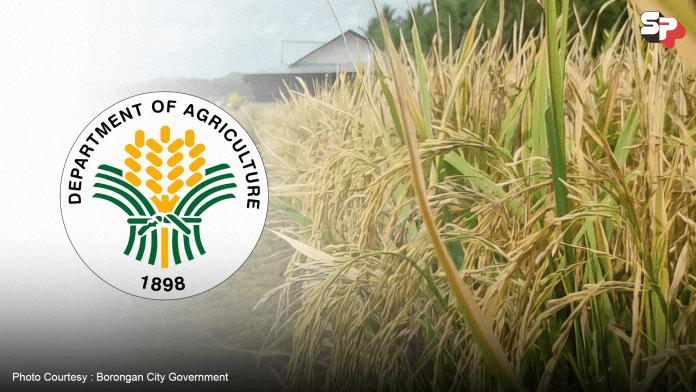MANILA – The Department of Agriculture (DA) is set to lower the buying price of palay of the National Food Authority (NFA) to help ease retail prices of rice during the wet harvest season.
“World prices, medyo bumaba na rin and hindi bababa ang price ng bigas sa merkado kung ang buying price (of palay) pa rin ng trader at gobyerno ay mataas (somewhat decreased and the retail price of rice will not drop if the buying price of palay of traders and the government remain high),” DA Secretary Francisco Tiu Laurel Jr. said in an ambush interview on Wednesday at the sidelines of the Senate committee budget hearing.
“Hindi na ho (It’s no longer) PhP 30. As of today PhP 26, PhP 27 na. By next week, nag-usap na kami ni NFA Administrator Larry Lacson, ibababa natin (I already talked with NFA Administrator Larry Lacson, we will lower it) to PhP 23. But of course, we have to inform the farmers first para hindi sila ma-shock (so that they will not be shocked),” Tiu Laurel said.
Under the NFA’s higher buying price scheme, prices range from PhP 17 to PhP 23 per kilogram for fresh or wet palay and PhP 23 to PhP 30/kg for clean and dry palay.
Tiu Laurel, however, assured that farmers would still secure profit despite the drop in buying price.
For his part, Lacson said the lowered buying price will remain in a range to be able to play with the market.
“It’s not really an abrupt going down of price. As mentioned by the Secretary na (that) in a matter of 8 to 10 days, bababa na iyan (it will go down),” he said.
‘Sabi niya nga nasa (He said it’s [currently] around) PhP 25 to PhP 27, so if you make it PhP 23 to PhP 25, that’s PhP 2 less doon sa band. Iyon lang ang ibig sabihin noon (from the band. That’s what it means), it’s not absolute, range pa rin iyon (that’s still a range).”
Lacson added that the move will also help NFA buy a higher volume of palay for the national rice buffer stock and help more farmers.
Earlier, Tiu Laurel said the public may start to experience the lower retail price of rice by mid- or end-October, considering import arrivals under the lower tariffs and the wet harvest season, with the full effect expected in January.
The DA also expressed optimism that the Indian government’s decision to lift the export ban on non-basmati white rice will help soften global rice supply and price pressures for imported rice. (PNA)

